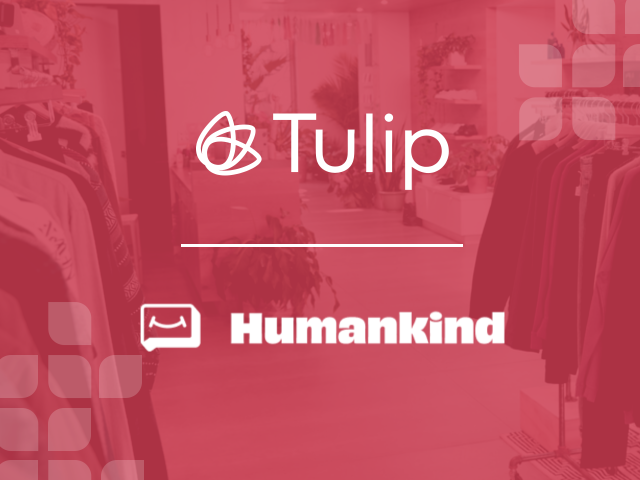The strategy behind using personalization to develop lasting connections with customers
Everyone knows that you need to personalize the customer experience with your brand in order to truly win hearts (and wallets). But not everyone knows how to actually use personalization effectively.
It’s more than just sending a “Hello, <first name>” email.
We’ve gathered practical insights from a seasoned retail expert, Maria Brown, who has worked with renowned retail brands like Balenciaga and Nordstrom to build strong client relationships.
In this blog we share Maria’s actionable strategies and expert tips for using personalization efficiently in a highly competitive retail landscape.
Listen to understand
Customers visit stores with a specific goal in mind, whether it is to try a product for the first time, get a feel for the brand, or ask questions. As a store associate, it is your job to understand what that goal is.
This requires truly listening to the customer and reading between the lines if necessary. It also requires getting as much information as you can about them before trying to make a sale. Learning about their hobbies, preferences, or important dates— and treating it as a privilege to be invited into their lives— is the beginning of developing meaningful relationships.
When you have information about who they are and how they shop, including past purchases, preferred categories, sizes, favorite colors, and more, stored in your memory and personal notes, you are much better equipped to create an experience that is truly personal to them.
Retail expert tip:
Making customer information accessible to everyone in a company can be a powerful tool for building and maintaining relationships. When an associate leaves a company, the information they have about their customers often goes with them. This can be a major setback for the company, as it loses valuable insights into its customers’ needs and preferences.
With a digital, cloud-based clienteling system, this information can be stored and accessed by everyone in the company, even after an associate leaves. This means that no matter who a customer interacts with, they will receive the same level of personalized service. It also means that the company can continue to build relationships with its customers even when there is high turnover among its employees.
In a high-turnover industry, it is essential for companies to find ways to keep their customer relationships strong. By making customer information accessible to everyone, companies can ensure that their customers always have a positive experience, no matter who they interact with.
Educate and inform
Being educated about the products you sell gives customers the confidence to trust you as an advisor. If a customer goes into a store with the objective of learning about a new line of foundation, they may have a lot of questions: Does it have AHAs or BHAs in it? How many shades does it come in? Are the ingredients ethically sourced? Is the packaging easy to maneuver for someone with motor function disabilities?
As an associate, you are seen as an expert on the brand, so answering “I don’t know” to any of their questions may leave them with a poor impression of the brand as a whole. Being able to educate and inform on products is key to keeping them immersed in the brand and confident in your abilities to serve them.
Retail expert tip:
Instead of memorizing stacks of flashcards of every product the brand offers, leading retailers empower their associates with detailed product information on a mobile “endless aisle” catalog. This allows you to showcase products shoulder-to-shoulder with customers in an engaging and immersive way that keeps them “in the zone.”
This is because you can access the information more quickly and easily, and you can also use multimedia features such as videos and images to make your presentation more interesting. Additionally, you can use the mobile device to take notes during the conversation, which can help you to better understand the customer’s needs and to provide them with more personalized recommendations.
Be a problem-solver
Customers are not always going to get what they want. Sometimes, the store may not carry the right size, color, or variant of the item they want. However, this should not be the end of the discussion, associates need to be able to approach the problem with an immediate solution.
When a customer is unable to find the item they are looking for, they are often frustrated which can lead to negative feelings about the brand. By suggesting similar items that are in stock, you can help them find something that they will be happy with. Additionally, by being able to order the desired item for them online, you can ensure that they get the product they want, even if it is not currently in stock.
Going the extra mile to help customers is a great way to build loyalty and encourage repeat business.
Retail expert tip:
The ability to order online items from the store is convenient, but having to wait through two payment transactions can be a hassle. It can also be concerning for customers, as they may be reluctant to swipe their card twice.
Having a POS that can process a mixed-basket order, which contains both in-store and online items, in a single transaction, makes the checkout process much smoother and more efficient as it saves customers time and hassle.
Add value beyond the 4 walls of the store
Personalization is more than just providing tailored recommendations at checkout. It also includes how the customer interacts with the brand outside of the store.
For example, calling customers to remind them of special occasions and help them choose the perfect gifts or sending “thinking of you” messages after receiving a new collection that the customer will love, providing reminders when it is time to refill their perfume, or even just wishing them a happy birthday. These are all ways to continue to add value to the customer-brand relationship even without being face-to-face in the store.
By personalizing the customer experience outside the store, brands can create a more meaningful connection with their customers while staying top-of-mind as they go through their day-to-day life.
Retail expert tip:
Setting reminders to reach out to customers at important milestones can be extremely helpful to busy associates. For example, if a customer has an anniversary coming up, you can set a reminder to send them a card or email. Or, if a customer has recently made an online purchase, you can set a reminder to contact them to see how they are enjoying their new product.
However, instead of relying on hundreds of scattered sticky notes, having an automated single daily “to do list” view of all the upcoming outreaches to complete can make getting these tasks done smooth and efficient and help save time while boosting productivity.
Bringing it all together
To build strong customer relationships, retailers can use personalization strategies such as:
- Listen to understand customers’ needs and preferences.
- Educate and inform customers about products.
- Be a problem-solver and go the extra mile to help customers.
- Add value beyond the 4 walls of the store by personalizing across channels.
- Use technology to take away the back end labor and streamline tasks.
These tips can help you build strong relationships with customers and boost your bottom line.
Learn more
Love Maria’s insights and want to learn more about what personalization looks like in action?
Watch this 25-minute webinar Inside the world’s best store experiences where retail experts Maria Brown and Chelsea Theroux will dive into the systems and insights behind creating memorable customer moments.
Recommended reads
If you liked this blog, check out these other titles:

